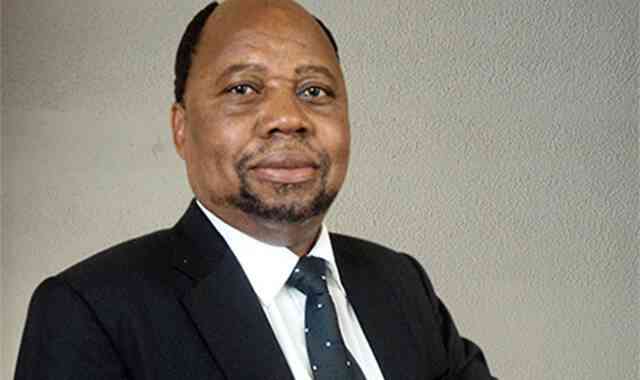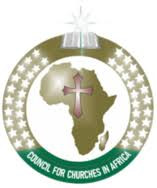
Last week, the Zimbabwe Independent featured the first part of an explosive interview between our chief reporter, Melody Chikono (MC), and Nicholas Vingirai, the chairperson of Transnational Holdings. At the centre of the discussion was a long-running, complex shareholding dispute involving Transnational’s subsidiary, Intermarket Holdings, and ZB Financial Holdings Limited (ZBFH). This week, the conversation continues — and takes a dramatic turn. Vingirai opens up on what he describes as muted voices at shareholder meetings, broken promises by regulators, and a financial system that has lost its ethical foundation. In his words: “Even 38,74% is too small — I know the value of what I built.” What unfolds is a damning critique of how corporate governance, regulatory trust, and investor protection have collapsed in Zimbabwe’s financial markets. Below are key excerpts from Part Two of the interview — unfiltered and unflinching:
MC: How did this dispute evolve?
NV: Because as Transnational we were adamant that we wanted out of that “forced marriage”, Grant Thornton was appointed to supervise the separation. They did their work for about two-and-a-half years and came up with numbers indicating that Transnational should get no less than 38,74%. When ZBFH did their acquisition, they had said Transnational’s value was 6% in the combined group. After some persuasion, Transnational said if we can do the transfer of the 38,74%, we can keep the group together. Now we have empirical figures. Let’s go by that. Clearly it was now an acquisition of ZB by Intermarket, a reverse acquisition if you like. But it is not me who produced the figures, it was them. I am even disputing the 38,74% because I know the numbers. I know the value of what I built.
That is where the negotiations leading to Transnational’s 33% came from.
MC: Tell us more.
NV: They said we can remain together. I didn’t mind staying. I didn’t have to. But I agreed. I still had my pre-emptive rights on Nssa’s ZBFH shares because Nssa hadn’t sold. And we kept reminding RBZ of the pending pre-emptive rights agreement they were still to deliver.
MC: Was the 33% signed for?
NV: It was just a matter of delivery. I still officially and formally have a claim on what Nssa was holding. So, the fact that people are saying, I am holding 23%, is just cheap technicalities. I own 33%. Otherwise why would I remain in ZB if it was not for the agreement, which granted Transnational 33% in ZBFH? How can you tell me that, “oh no, he has 23%” and you expect me to continue in ZB? I have always told them that if this doesn’t conclude, I am pulling out. I am taking Intermarket out. If anybody wants to dispute that, I don’t know how they would dispute. It is there for all to see. The idea that I can take my Intermarket and go as a way of settling this dispute was agreed to by ZBFH, RBZ and Transnational way back around 2018. It’s in writing. I have letters from RBZ.
- Our hands are clean, says Zinara board
- Auditors cast doubt on BNC survival
- Audit exposes serious financial mess at Zinwa
- Major coal miner rescuer sued over US$14m ‘loss’
Keep Reading
MC: When you are getting your dividends or rather when you vote, which percentage shareholding are you using?
NV: I sent in a proxy for 33% at the just-held AGM. What they will then do out there is their own issue. Dividends will always be paid based on the register and that’s another major problem yet to be settled. But this is a unique and exceptional circumstance which requires customised solutions.
MC: What transpired at the recent annual general meeting?
NV: We were in there as Transnational. Obviously, to make sure people don’t continue (misleading) the investing public. This was supposed to be shareholders showing each other that this is the way to go as far as the governance of our organisation goes. They chose to make it virtual. But as we discovered later, when we then logged in, we were muted or I was muted. I mean, you can see on my phone I was sending messages telling the meeting that I can’t speak, you have muted me. They were talking back to me. I was hearing them, but I was muted. So, some of the first resolutions they passed, I couldn’t comment. I couldn’t participate even though I was in the meeting. I abstained on two or so of the resolutions by way of proxy. I was going to speak to explain, but I was muted. I kept sending messages until I sent some on the “chat” to say, look, I can’t speak.
MC: What was the response?
NV: They were inviting me to talk. I couldn’t speak. Towards the end, when they were talking about the appointment of auditors, they kept saying they can’t hear me.
MC: So you didn’t contribute anything?
NV: Somebody stood up. I guess to do whatever, and it was at that stage that I was able to come in. I recall very well going back to the fact that, look, you approved the accounts up there. We had issues with the accounts. We couldn’t speak. I have a query and I have a question that I want the auditors to answer. That was my point. The auditors were called and I said: “look, we have the issue of the dispute, which is a very material issue. The dispute settlement has not yet been concluded. How come I am not seeing a formal statement to that effect so that the public can be guided accordingly as they make investment decisions? Because this annual report is so voluminous, the relevant statement must be prominently displayed in there to advise the investing public that there is this potential issue here. It actually brings issues of contingency risk for investors. So, how come it’s not in there? It is too material to exclude, and every year, that matter was always part of the financials.
MC: What did they say?
NV: The auditor’s response was, “Well, as far as EY are concerned, it’s not a financial matter. It’s a shareholder issue.”
MC: What was your reaction when you heard this?
NV: I was shocked to hear this. How does this become a non-financial matter? The implications are financial. There are major potential financial implications depending on which way this case will go, which will materially affect people’s investments. As auditors, you can’t tell me that to you, it’s something you don’t even mention. How? Of course, there was no credible response by the auditors. So I said, well, if this is the position, Transnational will vote against their reappointment and it was acknowledged. Then I said I want to put it on record that should they be appointed or should ZB do something to continue with EY, I will challenge that in the courts.
MC: Now, all resolutions have been passed.
NV: We shall see. As a shareholder, I have a right to call for the register and minutes to see what they have done. I haven’t done that yet.
I own the business. So, I will follow the processes internally first. Depending on the outcome, certainly, if we have to, we will move that way because the court should be the final arbiter. But as a shareholder, I have ways of dealing with the issue. However, if that doesn’t work, because the court is always the last resort and we can’t be silent about these issues, if it means we have to end up there, then we will end up there.
MC: This dispute has been going on for years.
NV: My own view on this matter is that we no longer have the kind of ethics, the kind of impartial, disinterested regulatory framework that we had in the golden past of banking when people respected ethics and rules, and honoured the sector and matters financial. If you were to talk about banking in our day, and you were going to see a bank manager, you would be so sure that whatever your problem was, whatever your bank manager would tell you, would be your answer, the solution to your problem. You could trust the banker of old with the keys to your house. We don't have that anymore. You could trust the banker of old to look after your family. We don't have that anymore. How do you explain a signature of a senior person not being implemented? Promises bearing the signatures of “top bankers” and senior offices in the land are being scoffed at? How? Something is terribly wrong with our society today. The agreement we have was signed by the Reserve Bank of Zimbabwe. How does it happen that the RBZ doesn’t say: “We signed on this thing, it must end. It must be performed?”
We no longer have values as a people. That is why everybody is just doing their own thing. It is as in the days described in the scriptures, when Israel had lost the moral compass and “every man did that which was right in his own eyes.” That’s what we have become as a people. Randomness, disorder, greed and selfishness rule the day. The banking sector is just as such. We are hoping that with the new leadership at the Reserve Bank, maybe things will change. How else do you explain something like this?
MC: So, it is difficult.
NV: A commercial dispute should never last beyond three years. Three years is at a stretch. How can a commercial dispute last decades? And a simple dispute for that matter. And it is not a dispute that has no facts. It is a dispute that has been investigated and facts presented.






